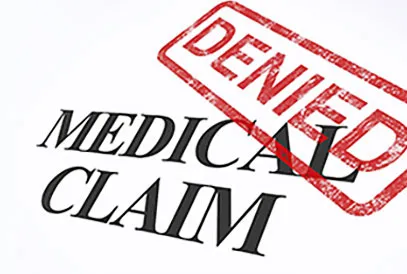Medical billing is a complex process with various steps that can differ on the patient, insurer, and procedure. If the medical billing is not correct then it will be considered fraud and also has severe consequences. So it is essential to file medical claims accurately. Even the most diligent financial services department experience claim denials, but knowing the common mistakes will help you take steps to avoid them. Here are the five most common mistakes that you must have to know about and avoid:
1. Duplicate Billing
It happens many times that we resubmit a claim but not remove it from the patient account. And at last, all the claims are processed and after evaluation, it shows claim duplication. Let us tell you that claims are placed into two categories. The first one is an exact duplicate and another one is a suspect duplicate. But due to our mistakes, they may appear as duplicates. These are few exact duplicate claims which contain the same following information:
- HIC number
- Provider number
- From the date of service
- Through the date of service
- Type of service
- Procedure code
- Place of service
- Billed amount
2. Services Not Covered
Insurance information can be changed at any time. It is very difficult to check the eligibility of services provided to the patient. So make sure that the services you have provided are covering their plan but their maximum benefit has not been met. You must have to verify with them before providing any service each time. And also require precertification under the terms of a member’s plan. It needs authorization when filing the claim. If you are following correct guidelines and using supporting documentation and plans with a cap can still cover services. Few examples of this are physical therapy, speech or occupational therapy, and the use of correct methods. The authorization needs to be supplied while filing the claim. For minimum errors, you must have to use medical coding and billing software that support your needs.
3. Referral or Prior Authorization Required
The referral and prior authorization are different from each other. These both are required at times. When a primary care physician sends the patient to another healthcare facility/expert for treatment then it issues a referral. And the payer issues a prior authorization who perform necessary services. These are supported by medical necessity and must fill on time.
4. Duplicate BillingFurther Documentation Requested To Support Medical Necessity
When any person adjudicates the claim then it requires a patient’s medical history, physical reports, physician consultation reports, operative reports, etc. Medicare and payers both know the medical necessity and decide factors for claim payment and processing as well. Every payer has a different definition but has the same outcome. It is very important to have documentation to support the level of service and records be requested. If there is no documentation then no services will be performed. According to section 1862 (a)(1)(A) of the Social Security Act, Medicare does not support services that are not reasonable and necessary for the treatment of illness or to improve the functioning of a malformed body member.
5. Upcoding or Unbundling
Upcoding means the provider’s use ofCPT codes to bill a health insurance payer for providing a higher-paying service. It is very important to understand that upcoding is illegal. As it is considered a fraudulent practice used by providers for additional services not just for documentation. The other example of improper coding is called unbundling or fragmentation. Few health care providers bill separately for each procedure or test which totals more than the special reimbursement rates.
These are the five common billing errors that result in claim denials. To help keep errors to a minimum, consider outsourcing your medical coding and billing to Unify Healthcare Services that support your needs. We are ISO and AICPA certified offering world-class medical billing solutions at an affordable price.
























